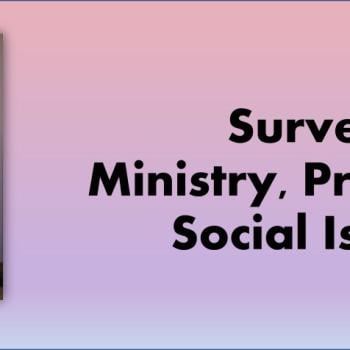The presence of the kingdom meant that God's anointed Messiah was here and was at work—that he was, in fact, accomplishing, as events soon to take place would show, the sovereign and saving rule of God. The future of the kingdom was the time when justice and peace would embrace one another and the whole world—the time from which perspective one could look back and see that the work had, indeed, begun with the presence and work of the anointed leader. (See Jesus and the Victory of God, ch. 10.)
To pray "your kingdom come" at Jesus' bidding, therefore, meant to align oneself with his kingdom movement and to seek God's power in furthering its ultimate fulfillment. It meant adding one's own prayer to the total performance of Jesus' agenda. It meant celebrating in the presence of God the fact that the kingdom was already breaking in, and looking eagerly for its consummation. From the centrality of the kingdom in his public proclamation and the centrality of prayer in his private practice, we must conclude that this kingdom prayer grew directly out of and echoed Jesus' own regular praying.
When we pray—and work—for God's Reign to come, it is because clearly the "not yet" component remains; when we look around the world, the Kingdom of God is not yet here. We see tornadoes, floods, drug violence, lying, cheating, grief, heartache. Jesus did not complete the job; it remains to be completed in God's good time. But because it remains to be completed, we are invited to be a part of it. And to return to Augustine, because we believe in God, because we are loved by God, we can love each other in ways that can be, for others, a taste of God's kingdom even in this imperfect time.
The theological basis for such a 21st-century faith, while it emerges from the traditional forms of revelation (scripture, tradition, reason, and individual and communal discernment), ought to privilege scripture. Despite the Bible's rough treatment in the hands of those we progressive Christians sometimes consider our nemeses, the Gospels are our best record of the Kingdom teachings and actions Jesus performed, and so we need to return to a serious study of the Bible, taking it, as Marcus Borg has said, seriously, if not literally. This reclamation of the Bible will be, in some progressive communities, a sea change. But as Borg and Brian McLaren point out in recent writings, when we read the Bible as the story of ongoing relationship with God instead of as some sort of contradictory legal document or religious constitution, we are introduced to the stories of love and life we're expected to emulate.
In the writings of the prophets, we find our progressive warrant for peace and justice; in the life of Jesus, as recorded in the Gospels, in the Sermon on the Mount, and in the Kingdom teachings, we are given the clearest possible idea of what God would have us do, since we see and hear Jesus at work. In the pastoral and theological letters of Paul and other leaders to groups of Jesus people, we see communities trying to work out their differences, calling each other to accountability, and seeking God's will, together.
Scripture, instead of being something to avoid, or to hurry past on the way to reason and tradition, should become again be our primary mode of revelation (although not our sole form). If we are called to take the Bible seriously if not literally, then taking scripture seriously means reading, wrestling, listening, and learning. The Bible is not a Boy Scout guide, it's not a Christian cookbook, but it is the collection of stories and songs and prayers that illustrate who God might be, what God wants, and how Jesus illustrates both of those things in the shape of a human life.
If my own history is any judge, progressives have tended to abandon the Bible to others who don't even read it well, and to focus instead on theologians or spiritual writers they admire and on their own developing understandings of how a God of love and justice ought to be moving in the world. But when we combine forms of revelation, when we read the Bible faithfully with an eye to context, when we discuss and discern faith questions in community, when we enter the 2000-year stream of conversation about what faith is meant to be, we discover that it just may be possible to combine heart and head.
I'd like to offer suggestions now in the form of three verbs we might consider a set of action items for a thoughtful, committed 21st-century faith: Follow, Hope, and Heal.
Follow
Just as the word "liberal" has taken such a beating at the hands of its foes that many former liberals now describe themselves instead as "progressives," the word "Christian" has been so disgraced and dishonored that some of us now like to call ourselves "Followers of Christ." Not only does this help us sidestep the painful baggage often attached to the word Christian now—intimations of hypocrisy, judgment, hatefulness, narrow piety—but it also helps us think of our faith not as something settled, but as something in process.





